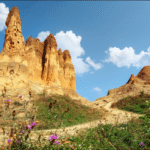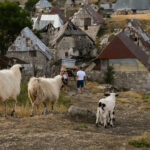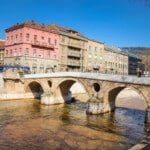Best tour offer to explore Sarajevo and Bosnia
Most popular day tours
/Explore allMost popular Bosnian multi-day tours
/Explore allMost popular Balkan multi-day tours
/Explore allTour packages
/Multi-day tours
Bosnia packages

Balkan Packages
Travel blogs
/Explore allWhy to visit Ljubljana | What to see in Belgrade | Things to do in Split | Trebinje | Pocitelj | Blagaj | What to see in Kotor | Ramadan in Sarajevo | Tito Bunker | Medjugorje Pilgrimage | Kravica Waterfalls | What to See in Tirana| What to See in Zagreb | What to see in Bihac | Luggage storage in Sarajevo | Sarajevo Olympics | Camping near Sarajevo | What to see in Jajce | What to see in Travnik | What to see in Mostar | What to see in Sarajevo | Sarajevo public transport | Sarajevo hiking trails | Bus lines from Sarajevo and East Sarajevo | Sarajevo roses | Sarajevo siege | Sarajevo war tunnel | What to eat in Sarajevo | Sarajevo guide for vegans and vegetarians | Is Sarajevo safe? | Shopping in Sarajevo | Bijambare caves | Visitar Sarajevo y Bosnia | Waterfalls in Bosnia | Srebrenica genocide | Kurt Schork | Josip Vancaš | The best way to get from Sarajevo to Belgrade | Dubrovnik day trips | Balkan tours | Bosnian coffee | UNESCO sites in Bosnia and Herzegovina | National parks in Bosnia and Herzegovina | Balkan Study Trip


























